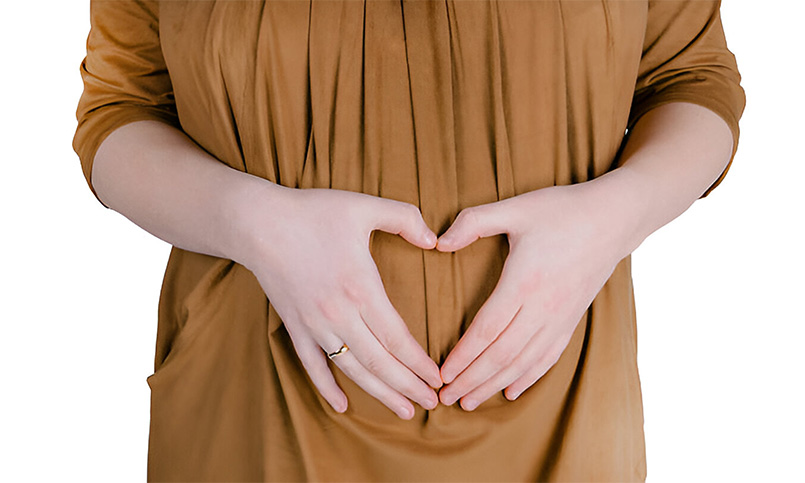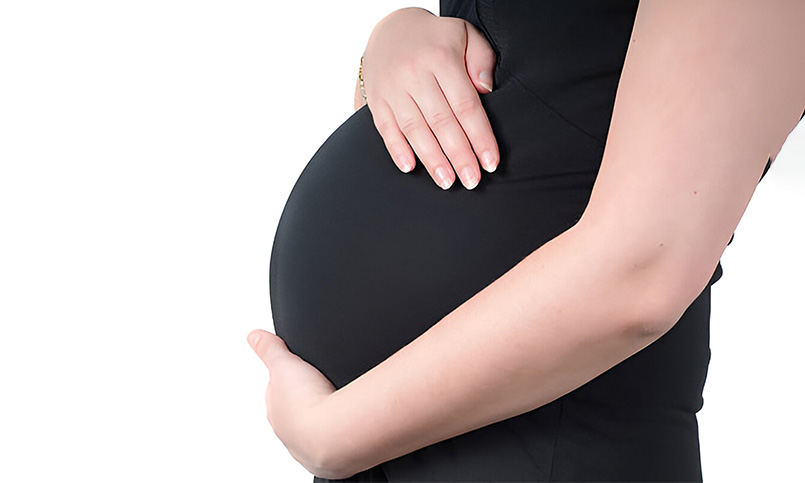Pregnancy is a beautiful journey, filled with excitement, anticipation, and, sometimes, unexpected challenges. One such challenge that some expectant mothers face is a tilted uterus. A tilted uterus, also known as a retroverted uterus, is a condition where the uterus is tipped backward, toward the spine, instead of its usual forward-facing position. While this condition is relatively common and generally harmless, it can cause some discomfort and concern for new parents.
Here in this detailed guide, we will explore the ins and outs of a tilted uterus during pregnancy, providing you with the knowledge and understanding to navigate this experience with confidence.

Introduction to a Tilted Uterus
Basically, a tilted uterus is a normal variation in the position of the uterus. During pregnancy, the uterus typically tilts forward, but in some cases, it remains tilted backward. This condition is often present from birth or can develop later in life due to various factors.
It’s really important to note that a tilted uterus is not a disease or a medical condition that requires treatment. It’s simply a variation in the position of the uterus, and many women with a tilted uterus have healthy pregnancies and successful deliveries.
Causes of a Tilted Uterus
There are several potential causes for a tilted uteru:
- Congenital Factors: Some women are born with a due to the way their pelvic structures developed during fetal growth.
- Scarring or Adhesions: Previous surgeries or infections in the pelvic region can lead to the formation of scar tissue or adhesions, which can pull the uterus into a tilted position.
- Endometriosis: This condition, characterized by the growth of uterine tissue outside the uterus, can cause the uterus to tilt due to the presence of adhesions or scar tissue.
- Pelvic Inflammatory Disease (PID): Infections in the reproductive organs can lead to scarring and adhesions, potentially causing.
- Uterine Fibroids: These non-cancerous growths in the uterus can sometimes cause the uterus to tilt, depending on their size and location.

Symptoms and Diagnosis
Lots of women with a tilted uterus during pregnancy experience no symptoms at all. However, some may experience the following:
- Pelvic Pain or Discomfort: it causes pressure or discomfort in the pelvic region, particularly as the uterus grows larger during pregnancy.
- Frequent Urination: it can put pressure on the bladder, leading to a frequent need to urinate.
- Back Pain: The uterus’s tilted position can cause strain on the back muscles, leading to back pain or discomfort.
If you experience any of these symptoms, your healthcare provider may suspect a tilted uterus and perform a pelvic examination to confirm the diagnosis. In some cases, an ultrasound may be ordered to visualize the position of the uterus and rule out any other potential complications.

Impact on Pregnancy
As a tilted uterus is generally not a cause for concern during pregnancy, it can potentially lead to some complications or challenges:
- Difficulty in Conception: In some cases, a tilted uterus can make it slightly more challenging to conceive naturally, as the position of the uterus may affect the movement of sperm or the implantation of the embryo.
- Increased Risk of Back Pain: As the uterus grows larger during pregnancy, the tilted position can put additional strain on the back muscles, leading to increased back pain or discomfort.
- Difficulty in Monitoring Fetal Growth: During prenatal appointments, make it slightly more challenging for healthcare providers to accurately monitor fetal growth and position using ultrasound or other imaging techniques.
However, it’s important to remember that many women with a tilted uterus have healthy pregnancies and successful deliveries.
Also Read: What are the Stages of Fetal Development?
Managing Symptoms
If you experience discomfort or symptoms related to a tilted uterus during pregnancy, there are several strategies that can help alleviate them:
- Prenatal Exercises and Stretches: Gentle exercises and stretches specifically designed for pregnancy can help strengthen the pelvic muscles and alleviate discomfort caused by a tilted uterus.
- Proper Posture: Maintaining good posture can help reduce strain on the back muscles and alleviate discomfort caused by the tilted uterus.
- Supportive Undergarments: Wearing supportive undergarments, such as maternity belts or compression garments, can help distribute the weight of the uterus more evenly and reduce pressure on the pelvic region.
- Heat or Cold Therapy: Applying heat or cold packs to the pelvic or back area can provide temporary relief from discomfort or pain.
- Over-the-Counter Pain Medication: After consulting with your healthcare provider, you may be able to take over-the-counter pain medication, such as acetaminophen, to manage any discomfort or pain related to a tilted uterus during pregnancy.

Tilted Uterus and Labor
A tilted uterus is generally not a cause for concern during labor and delivery, it’s essential to keep your healthcare provider informed about your condition. In some cases, a tilted uterus may require specific positioning or additional monitoring during labor and delivery to ensure the safety of both the mother and the baby.
It’s important to discuss any concerns or questions you may have with your healthcare provider, who can provide personalized guidance and support based on your individual circumstances.
When to Seek Medical Advice
While a tilted uterus is typically not a serious concern during pregnancy, there are certain situations when you should seek medical advice:
- Severe or Persistent Pain: If you experience severe, persistent, or worsening pelvic or back pain, it’s important to consult your healthcare provider to rule out any potential complications.
- Bleeding or Spotting: Any bleeding or spotting during pregnancy should be reported to your healthcare provider immediately, as it may indicate a more serious condition.
- Difficulty Urinating: If you experience frequent or severe difficulty in urinating, it’s essential to seek medical advice, as this could be a sign of a urinary tract infection or other complications.
- Concerns About Fetal Movement or Growth: If you have any concerns about your baby’s movement or growth patterns, it’s crucial to discuss them with your healthcare provider for proper evaluation and monitoring.
Emotional and Psychological Aspects
While a tilted uterus during pregnancy is generally not a serious medical concern, it can still cause anxiety or emotional distress for some expectant parents. It is good to know these feelings and look up for the support if required.
- Open Communication: Discuss your concerns and emotions openly with your partner, family members, or close friends. Sharing your thoughts and feelings can help alleviate anxiety and provide a sense of support.
- Seek Professional Support: If you’re experiencing significant anxiety, stress, or emotional distress related to your tilted uterus, consider seeking professional support from a therapist or counselor who specializes in perinatal mental health.
- Join Support Groups: Connecting with other expectant parents who have experienced similar situations can provide a sense of community, understanding, and support.
Conclusion
A tilted uterus during pregnancy is a relatively common occurrence that, in most cases, does not pose a significant risk to the mother or the baby. By understanding the condition, managing any discomfort or symptoms, and maintaining open communication with your healthcare provider, you can navigate this experience with confidence and peace of mind.
Remember, every pregnancy is unique, and it’s essential to seek personalized guidance and support from your healthcare provider regarding your specific situation. With the right information and care, a tilted uterus during pregnancy can be managed effectively, allowing you to focus on the joy and excitement of welcoming your new bundle of joy into the world.
FAQ
1. Can a tilted uterus prevent pregnancy?
While a tilted uterus can make it slightly more challenging to conceive naturally, it does not prevent pregnancy. Many women with a tilted uterus are able to conceive and have healthy pregnancies.
2. Will a tilted uterus affect the baby’s development?
No, a tilted uterus does not directly affect the baby’s development. The uterus’s position does not impact the baby’s growth or development within the womb.
3. Can a tilted uterus cause miscarriage?
In most cases, a tilted uterus does not increase the risk of miscarriage. However, if the tilted uterus is caused by underlying conditions like endometriosis or pelvic inflammatory disease, these conditions may potentially increase the risk of miscarriage.
4. Is it possible for the uterus to shift back to its normal position during pregnancy?
Yes, in some cases, the uterus may shift back to its normal forward-facing position as the pregnancy progresses and the uterus grows larger.
5. Can a tilted uterus affect the delivery process?
In most cases, a tilted uterus does not significantly affect the delivery process. However, your healthcare provider may need to adjust positioning or monitor the labor more closely to ensure a safe and successful delivery. Open communication with your provider is essential to address any concerns or challenges that may arise.

